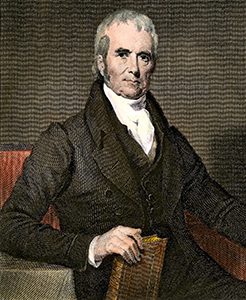POP CIV BREAKING NEWS: Second Amendment Rights and the Courts
UPDATE: On June 23, 2022, the Supreme Court announced its opinion in New York State Rifle & Pistol Association Inc. v. Bruen. This represents the most significant ruling about Second Amendment rights to be issued in more than a decade.
The majority opinion, written by Associate Justice Clarence Thomas, strikes down the New York law that required individuals seeking concealed-carry permits to demonstrate a “proper cause” to carry a concealed handgun. Justice Thomas wrote:
“New York’s proper-cause requirement violates the Fourteenth Amendment in that it prevents law-abiding citizens with ordinary self-defense needs from exercising their right to keep and bear arms.”
By striking down the New York law, this landmark decision solidifies a citizen’s Constitutional right to carry a concealed handgun outside of their home. Additionally, jurisdictions with “may issue” laws, where the onus is on applicants to prove their need for a concealed carry permit, will be struck down. Instead, “shall issue” standards will be applied, meaning that the burden of proof to deny an application now rests with the permitting authority, rather than the applicant. At the time of the decision, 43 states were “shall issue” jurisdictions, while only six states (including New York) have “may issue” policies in place.
In the concurring opinion, Associate Justice Brett Kavanaugh, joined by Chief Justice John Roberts, takes particular note of those numbers:
“The Court’s decision addresses only the unusual discretionary licensing regimes, known as “may-issue” regimes, that are employed by 6 States including New York. …By contrast, 43 States employ objective shall-issue licensing regimes. Those shall-issue regimes may require a license applicant to undergo fingerprinting, a background check, a mental health records check, and training in firearms handling and in laws regarding the use of force, among other possible requirements…. Going forward, therefore, the 43 States that employ objective shall-issue licensing regimes for carrying handguns for self-defense may continue to do so.”
Justice Kavanaugh goes on to state that, despite the Court’s decision to overturn this particular New York law, the Constitution still allows for “a ‘variety’ of gun regulations.” Justice Kavanaugh cites the opinion written by former Justice Samuel Alito in District of Columbia v. Heller, which we reference in the post below.
Associate Justices Stephen Breyer, Elena Kagan, and Sonya Sotomayor dissented. In his dissent, Justice Breyer made reference to the recent uptick in gun violence across the nation, and criticized the court for striking for the New York law “without considering the State’s compelling interest in preventing gun violence and protecting the safety of its citizens, and without considering the potentially deadly consequences of its decision.”






